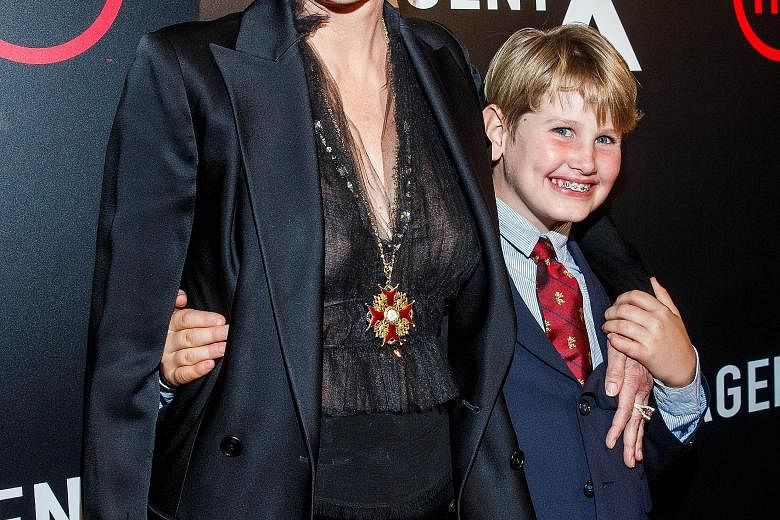Sharon Stone has become the latest actor to publicly attack the gender pay gap - not only in Hollywood, but across all professions.
Speaking at a fashion event celebrating her sister, Kelly, she recalled weeping over unequal salaries more than 20 years ago, following the release of Basic Instinct, the erotic thriller which catapulted her to fame in 1992.
"After Basic Instinct, no one wanted to pay me," she said. "I remember sitting in my kitchen with my manager and just crying and saying, 'I'm not going to work until I get paid.' I still got paid so much less than any men."
She currently executive produces drama series Agent X, in which she stars as the United States vice- president who discovers a secret paragraph in the constitution concerning the hire of a special agent to handle cases too sensitive for the CIA or FBI.
Stone's move into TV mirrors that of other female actors, including Viola Davis, Zooey Deschanel and Maggie Gyllenhaal, who have reported that the small screen offers richer opportunities for women, both in terms of salary and role, than movies do.
In the US, research indicates that women earn an average of 78 cents for every dollar made by their male colleagues; in the entertainment industry, this falls to 40 cents. But Stone was eager to stress that the issue was universal. Any change, she said, "has to start with regular pay, not just for movie stars, but regular pay for the regular woman in the regular job".
Last month, Jennifer Lawrence added her voice to the chorus lobbying for action. It was revelations contained in last year's leaked Sony e-mail messages about how Lawrence - then an A-lister and Oscar winner - was paid less than her male co-stars in the film American Hustle that are thought to have triggered the new wave of outrage.
In February, Patricia Arquette called for "wage equality once and for all" in her Oscar acceptance speech; since then, stars including Meryl Streep, Cate Blanchett, Emma Thompson and Charlize Theron have also spoken out.
Writing for Lena Dunham's Lenny Letter website, Lawrence described how she internalised anger after learning of the pay discrepancy. "I failed as a negotiator because I gave up early," she wrote. "I didn't want to keep fighting over millions of dollars that, frankly, due to two franchises, I don't need."
But she did express dismay over the language commonly used to describe female actors who are seen as forthright, citing the reference to Angelina Jolie as a "spoiled brat" in a leaked Sony e-mail.
She also suggested that some blame may lay with women themselves. "Could there still be a lingering habit of trying to express our opinions in a certain way that doesn't 'offend' or 'scare' men?" she wrote. "I'm over trying to find the 'adorable' way to state my opinion and still be likable."
Speaking to The Guardian, Rooney Mara, who stars in forthcoming romance Carol, echoed the concern: "To me, the thing that's more unfair than the pay is the terminology that's used to describe actresses who have a point of view," she said. "I've been called horrible things. The thing I find so frustrating is calling women spoiled brats and bitches."
Lawrence's essay met with a warm reception, with Emma Watson and Elizabeth Banks voicing their support on Twitter, and Jessica Chastain calling salary inequality "completely unfair" in an interview with Variety referencing the article. Bradley Cooper, who was one of the actors paid more than Lawrence on American Hustle, also supported her attack on the pay gap.
Forbes recently ranked Lawrence the highest-paid female actor of 2015. She made headlines in June for negotiating a higher salary than Chris Pratt, her co-star in the upcoming blockbuster Passengers. Pratt will earn US$12 million (S$17 million) for the film, while Lawrence will make US$20million upfront or 30 per cent of the film's profits.
THE GUARDIAN

